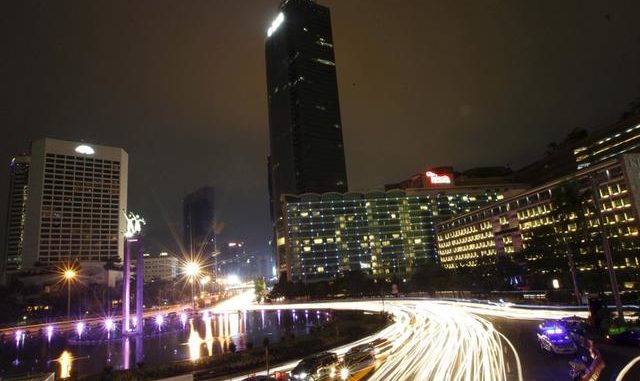
– Indonesia plans to revise its luxury tax scheme for cars to encourage production of environmentally friendly vehicles and to help promote Southeast Asia’s biggest economy as a regional hub for exports, ministers said on Monday.FILE PHOTO: A view of a traffic roundabout in the central business district before the lights were turned off for Earth Hour in Jakarta, Indonesia, March 19, 2016. REUTERS/Garry Lotulung
During a consultation with a parliamentary committee, Finance Minister Sri Mulyani Indrawati said Indonesia aimed to overhaul its existing scheme so charges were no longer based on engine capacity, but on fuel consumption and carbon emissions.
The government plans to charge an 8 percent luxury tax for cars running on renewable fuel, including palm oil-based fuel, no taxes for electric vehicles (EVs) and to cut taxes for hybrid cars, Indrawati said. The maximum ceiling for taxes will be 70 percent.
Indonesia currently taxes vehicles in a range of between 0 percent to 125 percent depending on engine capacity, the size of the car, the type of fuel it uses and whether it is two- or four-wheel drive.
“We need to support the transportation industry with a technology that is more competitive,” Indrawati said.
“This is also in line with global concerns on climate change with CO2 emissions becoming a bigger concern for the automotive industry,” she said, adding that based on an assessment by her ministry, the change would result in higher government revenue.
Industry Minister Airlangga Hartarto said the tax overhaul was also intended to support higher production of sedans in Indonesia, which could be exported to Australia.
Jakarta and Canberra recently signed a free trade agreement eliminating Australian import tariffs for cars produced in Indonesia.
The country is trying to replace Thailand as a regional hub for cars. Hartarto said in 2018 Indonesia produced 1.3 million cars and exported 346,000 units, below Thailand’s 2.2 million car production and its 1.1 million exports.
Indonesia plans to start processing its rich supplies of nickel laterite ore for use in lithium batteries to become a global hub for producing and exporting EVs to Asia and beyond.
Indrawati told the parliamentary committee the new taxes would be applied from 2021 following industry consultation and to allow manufacturers to scale up technology.
JAKARTA (Reuters)
